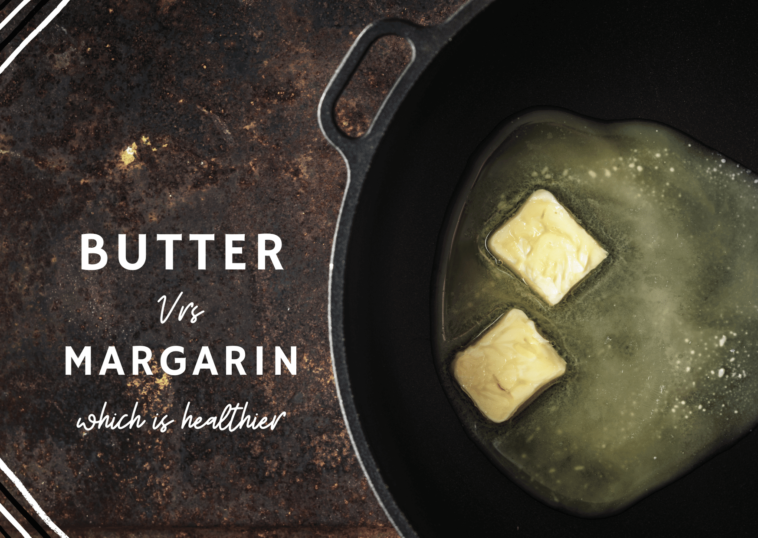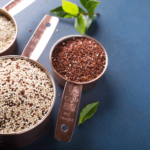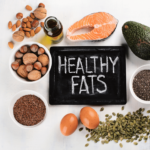One of the most recurring debates in nutrition is whether butter is healthier than margarine. This is an issue on which even the chefs, and dieticians seem to disagree on. Perhaps due to a lack of update on changes in margarine production and evidence on the health effects of butter so the debate goes on.
In this article compare the two, and go over what is known today about the effects of consuming margarine or butter, and which is better from a nutrition stand point.
What is butter?
Butter is a food that is made from the fat in milk. It is mainly used as a fat for frying, as a spread or as a component of various foods such as sauces, cookies or sweet products.
Because it comes from milk, butter is mostly made up of saturated fat.

What is margarine?
Margarine is a processed food made from vegetable oils. It has a taste and appearance similar to butter. However, its fat content is different.
Margarines are made through a process called hydrogenation. This brings the margarine to a solid state and a creamy texture.
For decades, hydrogenation increased not only the saturated fat content, but also added trans fat. A type of fat that is not so health to the human body.
A more recent process called interesterification achieves similar results without forming trans fats. Therefore modern margarines are made up of a mixture of fats – saturated, polyunsaturated and monounsaturated.
Why so much confusion?
When consuming high levels of saturated fat was associated with an increased risk of heart disease, butter fell into the unhealthy category.
So some nutritionists and doctors recommended consuming margarine.
Many people accepted the disappearance of butter in stride, dismissing the loss of its tasty flavor but accepting that its effect on the heart could be too high of a price.
The problem: the old-fashioned margarines had high levels of trans fat that did a double whammy for heart disease. Many people felt betrayed or cheated.
The truth is, there was never good evidence that using margarine instead of butter reduced the chances of having a heart attack or developing heart disease.
Making the switch was a well-intentioned assumption, given that margarine had less saturated fat than butter, but it overlooked the dangers of trans fat.

Margarine vs Butter – Which is Healthier?
Today, the dilemma between butter versus margarine has been simplified.
From a heart disease point of view, butter remains on the list of foods to use in moderation, mainly because it is high in saturated fat. Margarines, however, depend on their manufacturing process.
Some of the newer margarines are low in saturated fat, high in unsaturated fat, and free of trans fat. Some producers even add healthy fats like Omega-3.
These types of margarines are best as long as you don’t use them too much (they are still high in calories).
In addition, margarine has another advantage – it is suitable for vegans.
If you prefer margarine to butter, try selecting varieties without trans fat. If it says “hydrogenated” anywhere on the package or ingredient list, AVOID IT.
Remember that when it comes to fatty foods the goal should always be to limit your intake of saturated fat and avoid trans fat altogether.
If you have an intolerance problem (gluten, lactose, etc.) make sure to buy suitable margarines for you. If you have hypertension, choose unsalted margarine options.
So what are some of healthiest alternatives to margarine or butter?
Healthier alternatives to margarine and butter
The healthiest alternatives to butter or margarine are unprocessed vegetable oils.
Olive oil, canola, coconut oil, and other products that contain monounsaturated and polyunsaturated fats are better for your health.
These types of fats are healthier and are associated with better levels of triglycerides, higher values of good cholesterol and lower levels of bad cholesterol.
The next time you decide to snack or make a sauce at home, consider making it based on olive oil rather than topping it in butter.
SUMMARY
Butter and margarine look similar and are used for the same purpose in cooking.
However, their nutritional profiles differ – butter is high in saturated fat, margarine is high in unsaturated fat, and depending on how it is made, it may have trans fat.
The health effects of saturated fat are highly controversial, although most dietary recommendations suggest limiting it to 10% of total calories in the diet. (4)
Regarding trans fats, which can be found in some margarines, it is certain that they increase the risk of chronic heart disease.
If you prefer margarine over butter, be sure to choose non-trans fat brands. These could be considered even healthier than butter.
Whatever you choose, consume these products in moderation. Or better yet, use healthy oils, like olive oil.
This article is intended for general informational purposes ONLY. Please consult with a licensed physician for a professional medical advice. If you take whatever action based on the material presented is solely at your own risk, and responsibility (disclaimer).



